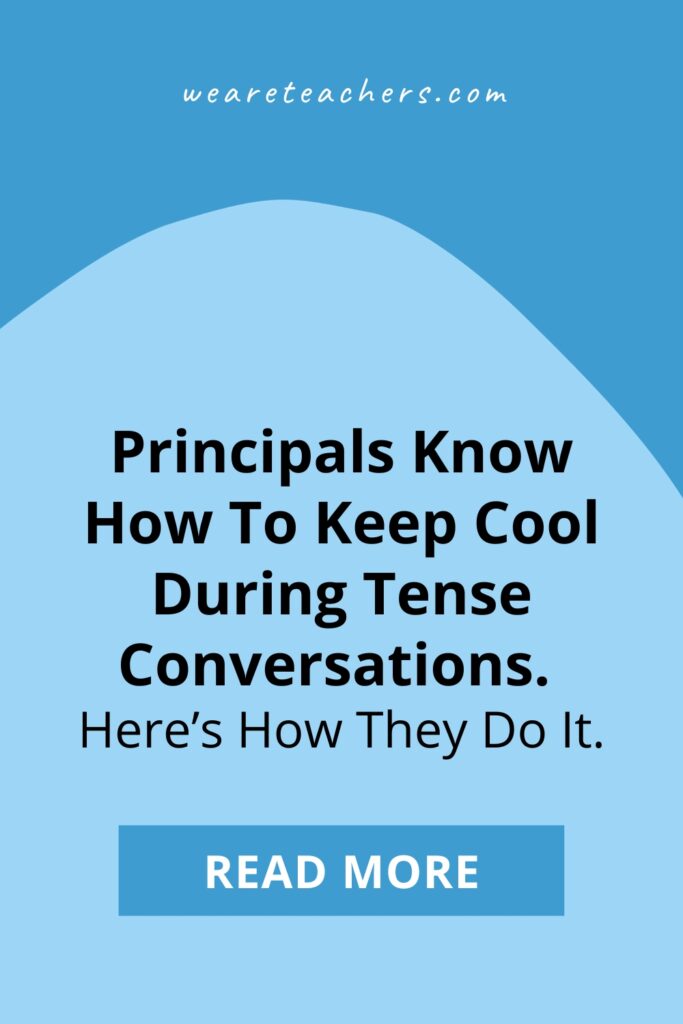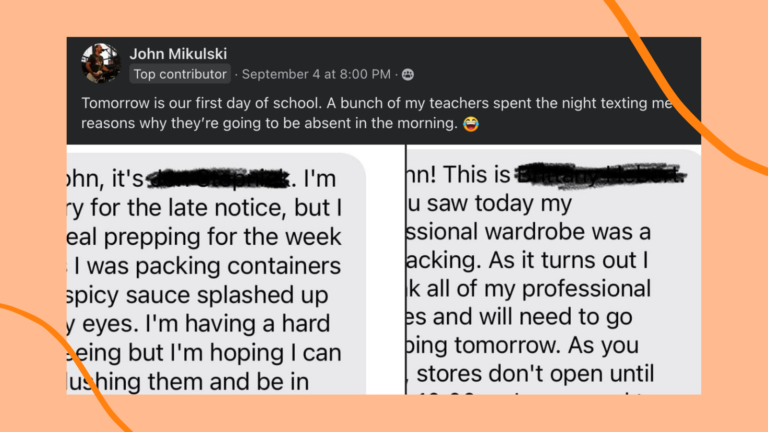From challenging parenting interactions to difficult discussions with teachers and students, hard conversations are part of a principal’s job. School leaders are always practicing the art of keeping their cool and their emotions in check.
Recently in our Principal Life Facebook Group, we asked, “How do you keep your cool when a conversation turns tense, emotional, or downright ugly?” Responses quickly poured in, and there were so many helpful tips and suggestions that we just had to share.
While we all know it is better to respond than react, it’s easier said than done. Here’s what principals do before, during, and after a hard conversation to keep their cool, protect their emotions, and get the job done.
Before the meeting
“I script my thoughts out in the form of a follow-up email I plan to send after the meeting.”
“It’s sort of a visualization exercise that helps me focus on what I hope to get out of the meeting as well as which points are crucial for me to hit. After the meeting, I go through what I drafted, make edits based on our conversation, and then send.” —Lindsay
“We establish ground rules.”
“I suggest mine and then ask if they agree and have any to add.” —Kim
“Timeliness of response reduces the intensity so much.”
—Vanessa
During the meeting
“I get paper out and start to write notes.”
“I let them speak. Periodically, I stop to ask clarifying questions. Most of the time they just want to know they have been heard. (I learned this from a Better communication podcast … and it works!)” —Lynne
“I always try to look for the underlying commonality.”
—Kourtney
“When parents yell, in my head I say, ‘Quack.’”
“Yes, like a duck. It helps me to keep calm and reminds me to let whatever their emotions, to let it roll off my back (like water off a duck’s back). A few quacks can get me through a really bad conversation.” —Adrienne
“I literally picture a shield going up around me made of Teflon and watch their words hit the force field and bounce off.”
“It allows me to stay emotionally detached while allowing them to vent.” —Amy
“Two words: rational detachment.”
“You have to stay out of your emotional brain and stick with your thinking brain. Rational detachment is the ability to stay calm and in control—to maintain your professionalism—even in a crisis moment. It means not taking things personally, even with button-pushing comments.” —Charles
“It helps to have a cup of tea or coffee in my hand to take a sip in the moment.”
—Nikki
“It’s OK to take a break or even reschedule.”
—Jennifer
“When in doubt, say, ‘If you were the principal, how would you handle this?’”
“I’ve never had a parent that didn’t calm down over time.” —Kim B.
“I always tell parents, ‘I would rather have a passionate advocate than a parent who simply does not care.’”
“If they are yelling, then they care. I remind myself of that with each conversation.” —David
After the meeting
“I send a follow-up email recapping what was said.”
—Corynn
“Schedule something that brings you joy after.”
—David
An important reminder when we talk about tough conversations: No one who works in a school should tolerate abuse. If a parent resorts to screaming, hate speech, physical intimidation, or threats, shut the meeting down immediately and contact your superior to report the behavior.
For more articles like this, be sure to subscribe to our newsletters.


